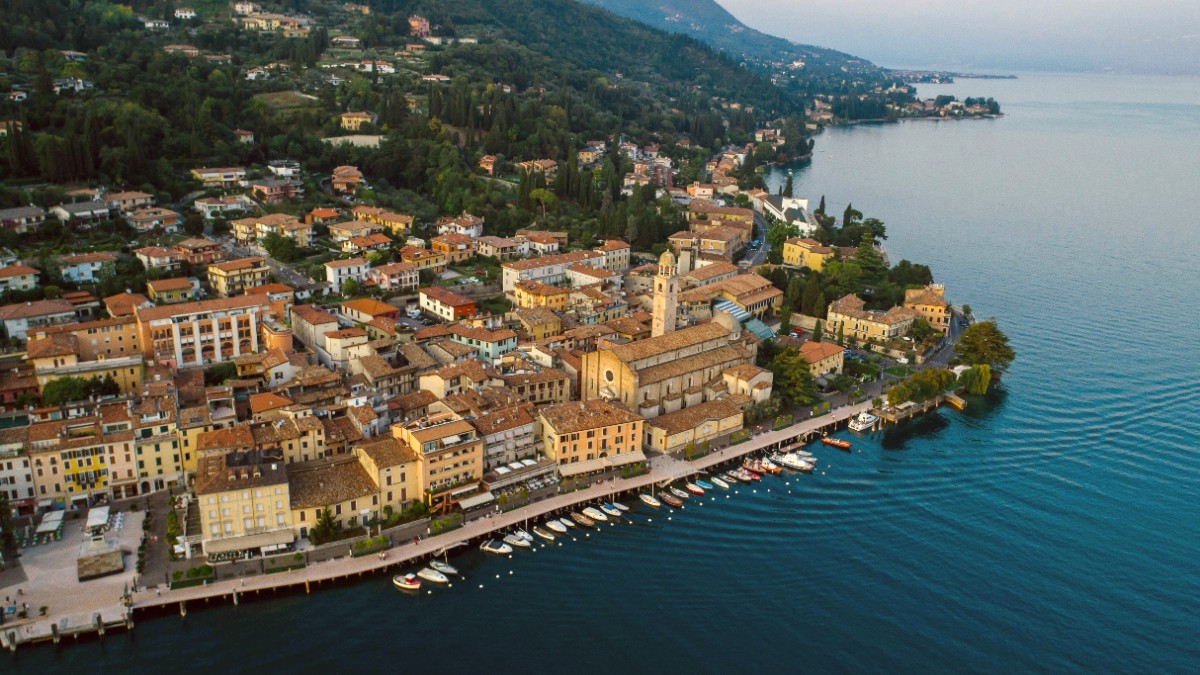
Lombardy And The Lakes, Italy
Discover a wide array of activities, from serene walks to thrilling sports, set against the backdrop of Lake Garda's natural splendor.
Accessible by rotating cable car, Monte Baldo has many trails, from easy strolls to challenging climbs. All routes offer wonderful lake views.
A scenic former road, now a popular hiking and cycling trail carved into the cliff face overlooking Riva del Garda. It is relatively easy to moderate.
Trails vary from gentle lakeside paths to difficult mountain trails needing proper gear. Always check maps and difficulty ratings before a hike.
Always check weather conditions before outdoor activities. For adventure sports, book with certified and reputable operators.
Engage with Lake Garda’s rich cultural heritage through interactive experiences that go beyond mere observation.
During summer, open-air concerts, theater, and traditional folk dance are common in town squares. Check local tourism boards for schedules.
Explore agriturismo options for a direct experience of local agricultural life. Many offer insight into farming, participation in harvests, or meals with farm-to-table ingredients.
Many festivals occur all year, celebrating local culture. These include wine and olive oil festivals, saint days, or historical reenactments (e.g., Regata delle Bisse).
Some schools in larger towns may offer short Italian language courses or conversation classes, building a basic communication foundation.
Visit during autumn harvest seasons for grapes and olives to see local traditions firsthand, often with opportunities for farm participation.
Engage with residents at markets, cafes, or local events for a understanding of daily life and traditions. A simple "Buongiorno" or "Buonasera" can begin a friendly exchange.
Lake Garda has chances for calm and well-being, from thermal spas to quiet natural settings.
A growing number of retreats are in the quieter, scenic areas around the lake, offering tranquility and wellness programs.
Standard European medical practices are common. For more traditional approaches, seek specialized wellness centers that might integrate holistic therapies.
Many hotels and campsites have private beach access or large pool complexes, good for relaxation and sunbathing. Public pebbly beaches are in most towns for swimming.
Enjoy peaceful walks along the lake promenades, especially in the early morning or late evening, for calm and fresh air.
Find a quiet spot with panoramic views to simply relax and take in the beauty of the lake and surrounding mountains.
Savor fresh, local ingredients, including lake fish and olive oil, contributing to a healthy and delicious dining experience.
While generally not a party spot, Lake Garda has various entertainment and nightlife choices, especially in its larger towns.
Desenzano’s lakeside promenade and old town are popular for evening strolls, aperitivo, and bar hopping. Many places stay open late during peak season.
Entertainment usually slows earlier in smaller, calmer towns, focusing on leisurely dinners and evening lake walks. Larger towns have more extended evening options, especially on weekends and in summer.
For those seeking casino entertainment, a casino is located in Arco, a town north of Lake Garda.
Partake in the widespread Italian tradition of aperitivo, a pre-dinner drink with complimentary snacks, often from 6 PM to 8 PM, a relaxed social event.
Some towns or operators might have evening walking tours, often with a historical or atmospheric focus, providing a different view of the sites after dark. Check GetYourGuide for evening activities.
In many towns, the evening atmosphere is more about a leisurely dinner, a stroll along the promenade, and enjoying the lake's quiet beauty rather than loud parties.
Drink responsibly and be aware of local regulations regarding public alcohol consumption, which vary by municipality.
Lake Garda has many shopping options, from bustling markets with local goods to high-end boutiques, catering to various tastes.
Look for small, independent shops selling local pottery, olive wood carvings, handmade leather products, and artisan jewelry.
These items often show the region's traditions and are more authentic souvenirs than mass-produced items.
If buying large items (e.g., wine cases, substantial ceramics), ask about shipping directly from the vendor. Be aware of your home country's customs regulations for imported goods, especially for alcohol or food items. VAT refunds are often available for non-EU residents on purchases above a certain amount from "Tax Free" stores; ask for forms.